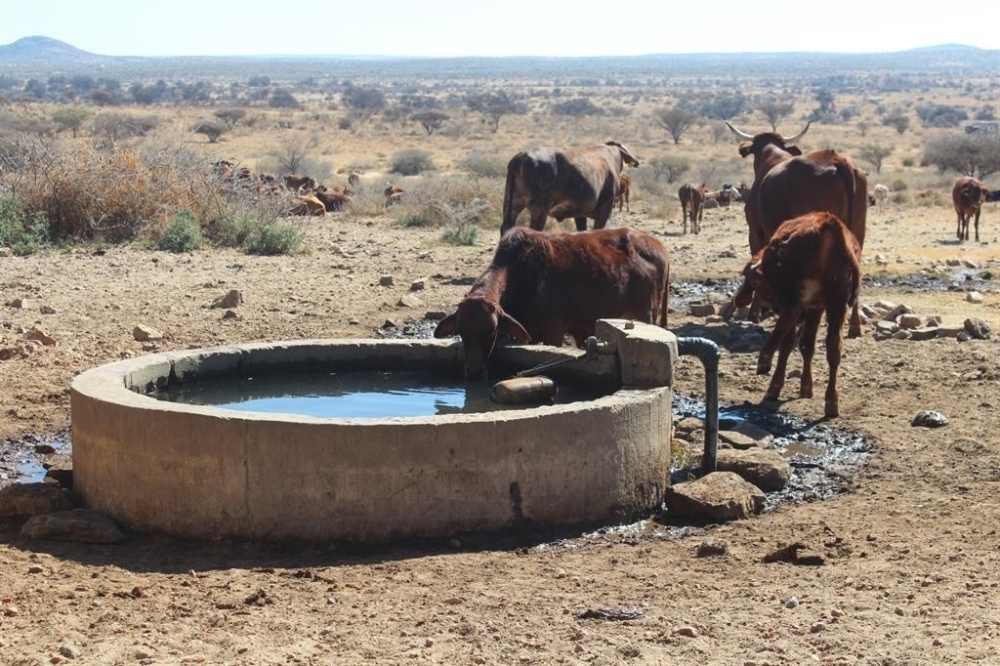
Restoring the veterinary cordon fence (VCF) as well as the Namibia-Botswana border fence would cost in the vicinity of N$75 million.
The Meat Board of Namibia has spent approximately N$14.4 million over the past five years, mainly to repair the VCF and licence and upgrade the Namibia Livestock Identification and Traceability System (NamLITS).
This is according to the Meat Board, which says it is frequently requested to assist the Directorate of Veterinary Services (DVS) with financing activities to maintain the foot-and-mouth disease (FMD) free zone and to support export certification.
It said that disease control is therefore key, and the Meat Board, on behalf of the meat industry, has made a proposal to the agriculture ministry for a special levy on essential services as it cannot assist the DVS indefinitely.
Improve support
It said that the meat industry had been reliant on the DVS for years, and lately it has been unable to fulfil its responsibilities in maintaining the necessary infrastructure and export certification due to financial and procurement constraints.
“It is crucial that the Meat Board special levy for essential veterinary certification services be gazetted as soon as possible. The Meat Board would not be able to support the DVS indefinitely.”
This levy would cover the maintenance of NamLITS, export testing at the Central Veterinary Laboratory, farm inspections and maintenance of veterinary control fences, it said.
The Meat Board explained that it is paying service providers for the NamLITS system to, among other things, do audits and improvements, data capturing and the rollout of NamLITS online and the NamLITS Helpdesk.
It also supports the testing of samples at the Central Veterinary Laboratory required for the export of beef and small stock.
Maintain health
Furthermore, the Meat Board, through its FAN Meat office, does on-farm, community import and export, and auction risk-based surveillance in addition to DVS inspections, while various parts of the VCF and border fences have been repaired and electrified by the Meat Board. It entails the procurement of material and the payment of fencing and maintenance teams.
The Meat Board said that the Meat Industry Act enables it to support the maintenance of veterinary services in the country and states that the objectives of the board are to promote the interests of the meat industry of Namibia in the country and elsewhere.
Its focus is therefore to maintain Namibia’s FMD, Contagious Bovine Pleuropneumonia (CBPP), Bovine Spongiform Encephalopathy (BSE) and Peste des Petits Ruminants (PPR) free zone, and secondly, to ensure livestock and meat exports are continuing to lucrative markets, said the Meat Board.
“Southern Africa, especially Namibia’s neighbouring countries, has recently been confronted with frequent FMD outbreaks.”
Safeguard industry
It said that some have been contained, such as in Namibia and Botswana, while others, such as in South Africa, are still ravaging their respective meat industries.
“In all cases, exports were halted either through the outbreak or the importing countries’ decisions.”
The Meat Board said it is therefore prudent that Namibia protect its free zone at all costs to safeguard the well-being of its meat industry.
It added that Namibia’s risk from disease outbreaks is not restricted to Angola or Zambia, but also includes Botswana and South Africa.
“The most appropriate way to protect the free zone is through fences, in Namibia’s case the VCF and the Namibia-Botswana border fence, and possible disease contamination through border post entry,” said the Meat Board.
“The impact on Namibia would be disastrous. Namibia would lose its FMD, CBPP, BSE and PPR-free status and accessibility to lucrative markets.”
According to the Meat Board, the country would immediately lose its market access for livestock and meat to its existing markets, such as the European Union, Norway, the People’s Republic of China and South Africa.
“As long as the Meat Board is financially able, it has no other obligation than to support DVS. It is important that all efforts are being done to support the directorate and industry to maintain the free zone to the benefit of the national economy.”
[Source – Republikein]
